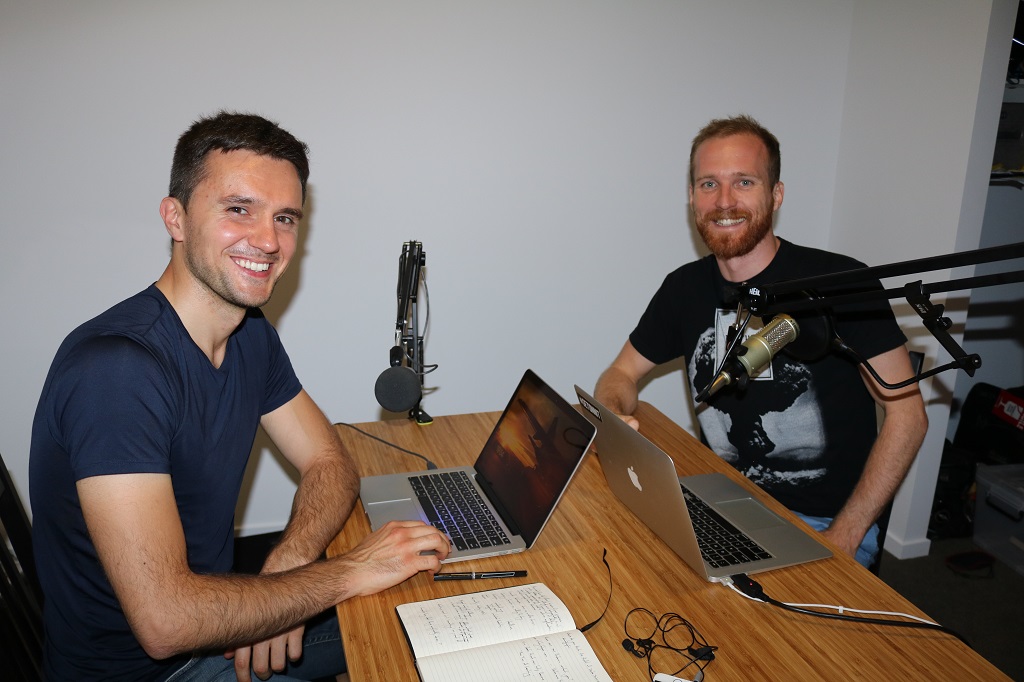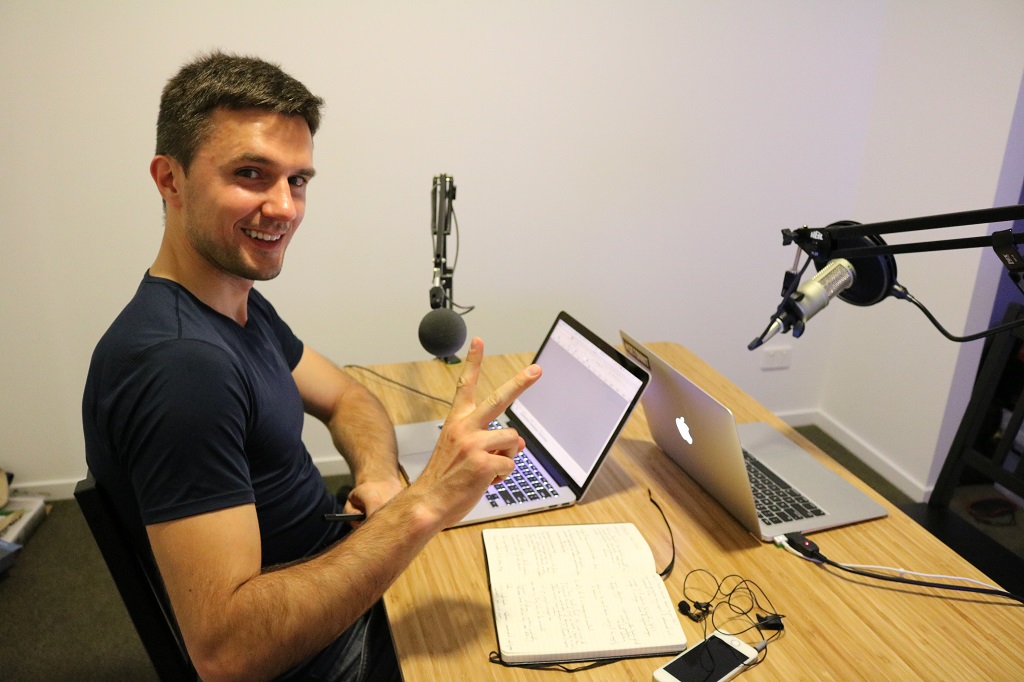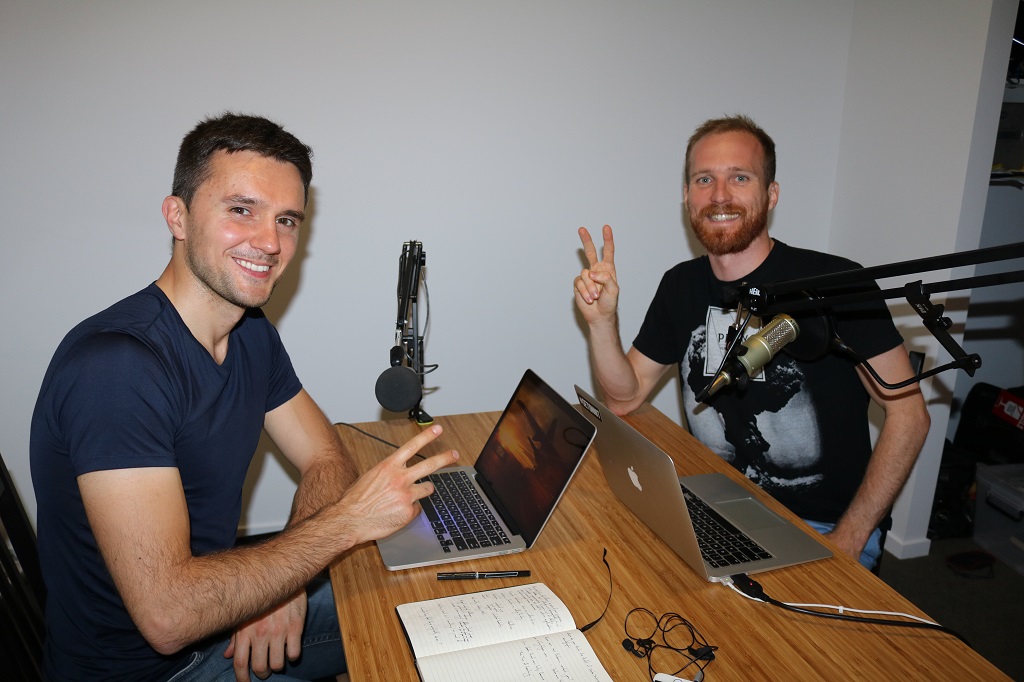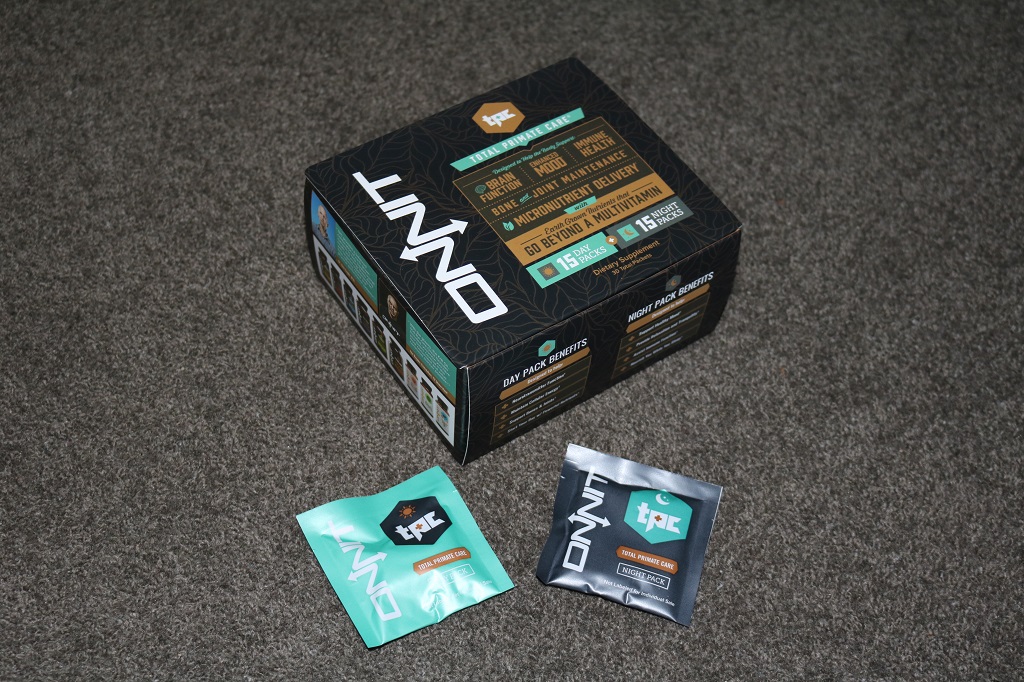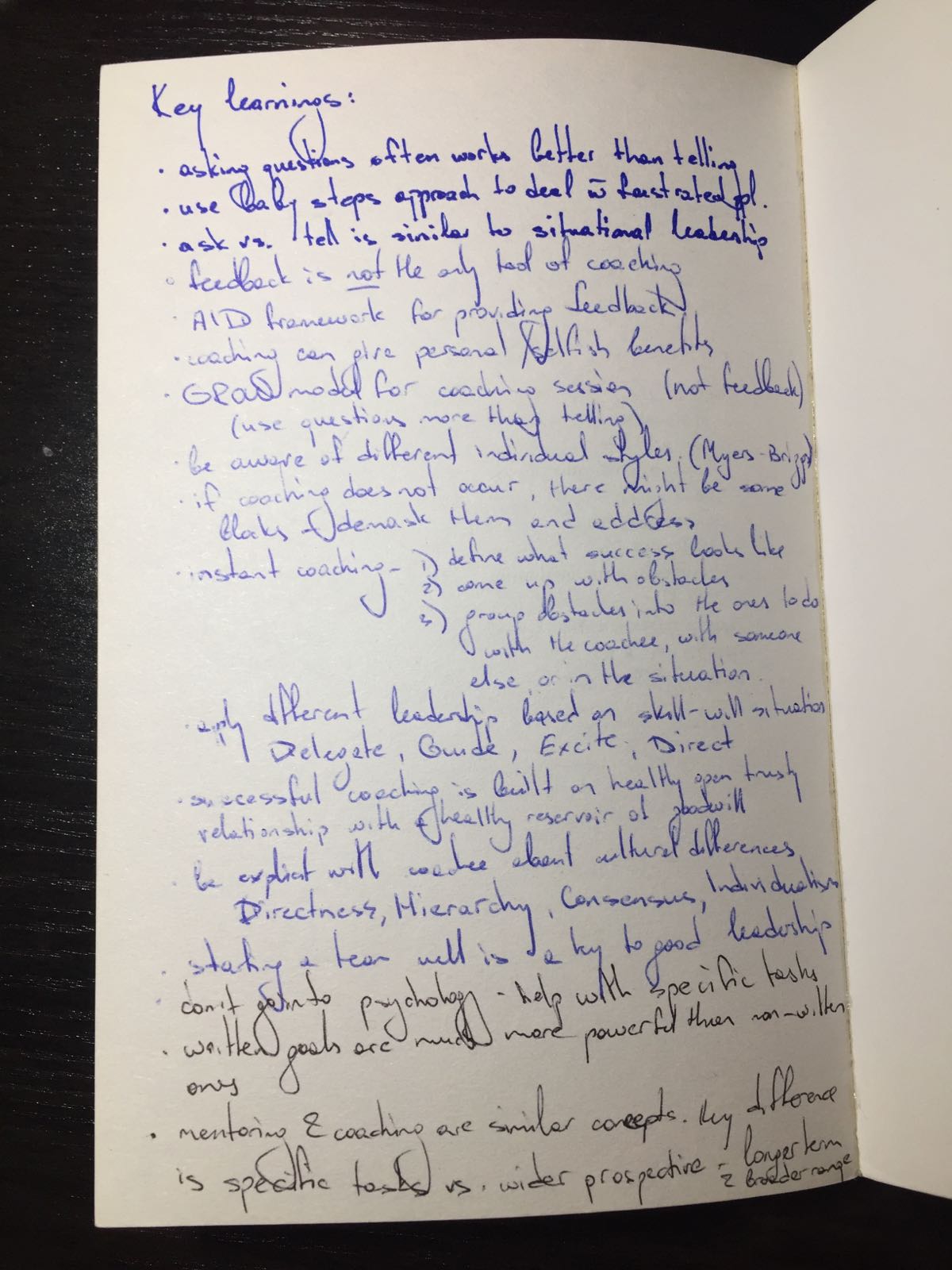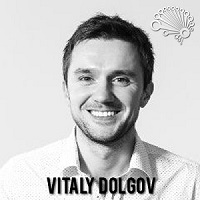Kirill: This is a special episode with top management consultant Vitaly Dolgov.
(background music plays)
Welcome to the SuperDataScience podcast. My name is Kirill Eremenko, data science coach and lifestyle entrepreneur. And each week, we bring you inspiring people and ideas to help you build your successful career in data science. Thanks for being here today and now let’s make the complex simple.
(background music plays)
Hey guys, welcome to the SuperDataScience podcast. This is a special episode of the SuperDataScience podcast. It’s an episode with my good friend and mentor, Vitaly Dolgov.
Now, why is this episode a special one? Well, because Vitaly and I were meant to record a proper podcast episode, and I was all set up waiting for him to call him on Skype, and then I hear the doorbell ring. So he actually lives in the same city as me, in Brisbane, Australia. And so he actually came over. He thought he were going to record it in person. And so we took some time to figure out the technical side of things, and then we were just chatting, and time flew by, and we didn’t have enough time to record a full episode. So instead, we just recorded some fun things we wanted to talk about.
So this episode is not specifically about data science, even though we do talk about some data things, but it’s more about life experience, things we’re up to, just like a fun casual chat. So if you want to join us for this chat, we are very happy to have you on board.
This is a very short episode, it’s just over 20 minutes long, and if you like this format, then make sure to go to www.www.superdatascience.com/special, scroll down to the very bottom, and leave us a comment. Just say that you liked the format, and then that will Vitaly to have more of these short but fun episodes so we can share our life experience with you.
And without any further ado, I bring to you Vitaly Dolgov.
(background music)
Alright, so I’m here with my good friend and mentor, Vitaly, doing the hospitality. How you going?
Vitaly: I’m good, Kirill.
Kirill: We were going to record a podcast episode, but then we kind of got carried away with the technical stuff, and decided to just record this random thing! Everybody on the SuperDataScience podcast, this is not really a data science episode, this is just some fun laughs with my mentor, my friend. Please forgive us! You don’t get too much data science from this, but hopefully you’ll get some laughs, and hopefully some life valuable information.
By the way, Vitaly, can you maybe introduce yourself a little.
Vitaly: My name is Vitaly. I’m Russian, as you can probably judge by my accent. Engineer by trade, worked most of my life in management consulting, and just recently joined Uber here in Queensland, Australia.
Kirill: And I promise you guys we’ll have Vitaly on the podcast as a separate episode. He’s got lots to share, but this is just a quick one. Yeah, so let’s get started with what are we drinking today?
Vitaly: We’re drinking pu erh tea. I know both you and I love tea, drinking tea. Actually, I paid attention about a month ago when you ordered tea instead of coffee, and I went huh, what is that all about? And decided to switch myself to tea, and pu erh is some sort of good substitution of caffeine intake for the day. And that’s what I brought to you today. Share the love!
Kirill: Yeah, it’s funny, because when I quit coffee — I quit coffee about 1.5 years ago. So it’s as I left Deloitte, and which was — no, it’s 2.5 years ago now. Wow, that’s crazy, yeah? 2.5 years ago! As I left Deloitte. And then yeah, it was hard the first month or so. But then again, I went to China, and actually I bought pu erh, and like you say, it’s a good substitution to coffee. And you quit what, two weeks ago?
Vitaly: Yeah. I’m good at quitting coffee. I’ve done it many times! Most recently, yeah, it was two weeks ago. I caught myself drinking six cups of coffee on one of the days.
Kirill: Wow.
Vitaly: Jittering. My speech was incoherent. Too fast. And I decided no. That’s actually physically hurting everything: myself, sleep, all the business conduct. That was like enough data points to make a decision then. Yeah, off I go.
Kirill: Yeah, and how do you feel two weeks later?
Vitaly: Good, good. There is a bit of a nostalgia when I smell coffee grinds or something, and I want to get the piccolo at least, like a very small short. Not of caffeine, but now I think some will and self control is stronger at this point.
Kirill: Yeah. So you think you’re going to be able to keep it up? Or are you going to cave at some point?
Vitaly: No promises made at this point! I hope that I will go into the [unclear] mode, like having a coffee once every 2 months, 3 months, just for the sake of taste. Yeah, it would be a much better alternative to many, many coffees per day.
Kirill: Yeah. It’s funny, because I feel that like about a year ago, if you were to tell me that, I would have been like, “no, you should go cold turkey, you should forget about coffee completely!” But I feel like I’m growing up slowly. I haven’t drunk coffee since then, but with other things. Like I stopped eating meat 6 months ago. But it’s not like I’ve completely given up on it. Like occasionally, I’ll have some meat, you know, once a month or so. And it’s do with lots of things. Like, I don’t know, if I decide I’m not going to drink for a couple of weeks, right? Not because I have a lot of drinking already, but I just don’t feel like it. Or I’m not in the mood. But I’m starting to realise that life is not so black and white, right? That especially if it’s not a super bad habit, it takes time to get over something, to gradually ease out of something. Would you agree with that?
Vitaly: Absolutely! One good technique is actually forcing yourself to cheat on your rules, but forcing to cheat in a regular and systemised manner. If you agree to quit doing something, don’t do it 100%. Do it like 99%, but allow that 1% to happen in a controlled manner. Know that you want to drink it, but in that specific circumstance. That’s what I did with coffee. If it’s not a social thing, if it’s not too close to your productivity, there are many other ways to do that that are harmless. But just purely because the coffee is known to be good, that grind of coffee. Because a friend takes you out to taste that specific taste and try to understand how it was done. So there should be a different purpose to just substituting sleep, which was in my case, and just drinking coffee. And once you slip that through, and say it shouldn’t be happening more than once a month, I think it could help. But I’m just a starter. But we’ll see it’s going to go.
Kirill: And what do you think about that concept that Tim Ferriss has, that in his book, “The Four Hour Body,” that you actually have a scheduled cheat day. Like you follow everything from Monday to Friday, but Saturday or Sunday you cheat. Like you eat whatever you want.
Vitaly: Yeah, yeah, yeah. I think it was Saturday, right? Or he called it Faturday. Yeah, I think that is a modification of that rule in some sort.
Kirill: Yeah, a bit of an extreme case, yeah? You have to cheat yourself. I know, since we’re talking about food, then another thing we were talking about just now was diets, and I was bragging to Vitaly how being vegetarian, I feel awesome. And then we got to talking about potatoes and how you can get very vitamin except for B12 from potatoes. I’ll leave a link in the show notes about where I found out about this cool video. What are your thoughts? You’ve seen me transition from eating meat to slowly becoming vegetarian. What are your thoughts? Do you think you’ll ever try it out?
Vitaly: I think I’m at the point of willing to try it out.
Kirill: Yes!
Vitaly: Frankly speaking, I have this — probably foolish — concept of bragging as — it’s a mannish thing to eat meat.
Kirill: Yeah.
Vitaly: And giving up on that is kind of like — didn’t feel right to do as a man, male, whatever you position it as. As a strong alpha guy. And looking at you, you’re about as strong, and you’re happy beaming, and have lots of energy, and you’re off meat — you said 6?
Kirill: 6 months, yeah. 5 or 6 months.
Vitaly: So it looks like it’s working, so dammit, like my previous label to strong guys eat meat is not potentially accurate. And I’m willing to try it.
Kirill: Yeah. Cool, and funny, because I actually told Vitaly just today, and he was shocked, that all the gladiators, it’s like historic archaeological evidence, that all of the gladiators were vegan. And like Alexander the Great’s army and himself, they were also vegan or vegetarian, and it’s just crazy. Like the strongest men in history were vegan, you know? And right now, the strongest man on the planet right now is vegan. They have a competition, Strongest Man on the Planet. He’s vegan. He wasn’t the strongest. He went vegan for 3 years.
Vitaly: That’s so funny. That’s enough data points to think about it. Speaking of food and intake of calories and supplements, how do you keep yourself going? How do you keep yourself sharp and on your toes? You have given me a gift today. It’s still wrapped. So what is it? And how do you make it happen?
Kirill: Can you bring it? So whoever is listening to this, this is not a commercial. This is just something that I think works. And I found out a bit from Tim Ferriss, and I got it in my hands right now. This is a pack from Onnit, and Onnit is O-N-N-I-T. Check them out. And they do lots of different supplements, mostly based on real natural products. So none of that chemical stuff. And the one I have in my hands right now is called the Total Primate Care, it’s got two 15-day packs and 15-night packs, and this is just an ensemble of different vitamins and supplements that you can take, you can take in the morning and in the evening. I haven’t seen the effect of that, I just take it regularly. I kind of like the thought that somebody is taking care of my health, and that’s kind of the position they have, that they just give you these packs, and everything’s taken care of for you. It’s just got all the vitamins you need, all the minerals. You don’t have to worry about anything.
But then they have this other one called Alpha Brain. And I actually take that one regularly. Like I take two pills in the morning. It’s all natural as well, but what I like about it is that after about 2 months, or 60 days, of taking that, I noticed that I — you know sometimes you forget words? Like a word escapes your memory. You feel it on your tongue, but it escapes? So that stopped. And also, I started being like Spiderman, catching things when they fall. And I totally attribute that to the Onnit brand and the Onnit Alpha Brain product.
Yeah, I don’t know. This is not a commercial. Check with your doctor before you make any decisions. But that’s pretty much it. And yeah, so I gave one to Vitaly today, and hopefully he’ll try it out, give us some feedback next time.
Vitaly: Sure, I’d love to.
Kirill: And I was going to ask you, you brought a book. What’s the book about?
Vitaly: Initially, we thought of doing a full-blown podcast on data science or just being analytical and how it helps in your career. And one of the questions that you kindly sent in advance was, “What was the book that you would advise to my (meaning your) listeners.” And this book is a gift from my mentor and my colleague, Michael Spence. He is a Director at [unclear]. Brilliant guy, and very, very sharp. And the book is called “The Tao of Coaching.” It’s by Max Landsberg. Hopefully I pronounced the name correctly. And the book is about how to be a great coach. As you know, management consultants are — we mentioned yesterday that I used to work in management consulting, and I’m very closely associated with the field. Management consultants combine strong IQ and EQ skills. So that’s Emotional Quotient and Intelligence. So numbers and humans, as they say, together. And this book helps you actually develop the EQ side of the business relationship. It helped me a lot to become a great coach for people like CEOs, line managers, GMs, that I most recently worked with. It’s awesome. You should check it out.
Kirill: What’s the best thing you’ve learned from the book?
Vitaly: You can check it out here. So even back then, I had a bit of a habit. And I’m showing to Kirill how at the back of the book, I usually write down some of the learnings. And you can judge by different types of pens that I used, I didn’t read it in one go. One of the biggest insights from the book is, “asking questions sometimes is more powerful than telling something.” So applying it to data science, asking questions could be sometimes as powerful as showing some charts. And that to me was, initially, kind of like, no way! No way this is going to happen! Being an engineer and very data driven, I thought data rules the world! With this book, I started to practice more appealing to the emotional side of people being at work, and I realised that it actually does work.
Kirill: Nice. Nice. And do you have an example you can share?
Vitaly: Let me think.
Kirill: While you think, I just gotta say guys, you don’t see this, but this is the neatest handwriting I’ve ever seen! I don’t know, I’ve never seen something like this, and my handwriting is total crap, so this is really impressive! Can I take a photo and put it up in the show notes?
Vitaly: Sure, sure, sure. Absolutely.
Kirill: This is fantastic!
Vitaly: Not the best skills to have nowadays. I think printing and dictation would rule out writing in the near future. But yeah, here we go. A bit of an archaeological thing.
One example. I’ll give it from the consulting world. So as you know, consultants are usually called to companies where, in most cases, something is wrong. Whether the sales are not big enough, whether there is a problem with the business, it’s heading towards bankruptcy or insolvency, and you just need to help a company with people who work at this company.
And one of the ways that I usually approached my area of analysis was to analyse it in and out, understand the biggest impact lever, and just present it like on the very last day of that diagnostic. Like on day 10 or day 14, if we assume a two-week diagnostic. I was hoping that it would just click with the line manager, with the general manager, construction manager, and they will say, “Oh my god. This is the solution that I was dreaming of! You are the best. Please help us implement this.”
It didn’t work that way. I tried to do that. I tried to show it. And people got the “Hm. Ok. Interesting. Move on.” And I was kind of like, “No! Like our team has just done such amazing work! All clear and transparent.” I realised that — and Michael Spence, the guy who gave me the book, the mentor that I referred to, he actually gave me that feedback and said, “Vitaly. You are giving the data directly to a person unprepared. You are not taking them on a journey.” And I was like “What is the journey? How do you quantify it? What is the number? What is this big journey?” It seems very vague!
And the technique of presenting someone with a solution was not to give the answer straight away. It was a series of meetings until the end of the run. These days, when I go to analyse [unclear] on the site of a business, you go to the place, you take your time, you have several meetings leading to the final meeting. And what you do, you take the client on a journey. Hm, look at your business. There are a lot of great things. And in most cases, you will notice great things that the client is doing. Like it’s either, safety is awesome, maybe even better than any other site you’ve been to. Or they pay attention to people-related issues, they take very seriously, and people love working at that company.
So you start with telling them about the positives. And it brings your client closer to you. They just stand there saying, “Ah, he actually is looking at my work and he actually can compliment and see the value that I’m delivering to this company.” So you kind of earn a bit of the trust of that person along the journey.
Then, the next step in the next meeting would be, “Hey, by the way, I found some of the kind of like ‘leading indicators’ to potentially some areas you could improve, like whether it could be in the cost area, it looks like you don’t have enough cost controls set up in place. Is my assumption correct? Or are my observations good, consistent with your thoughts and your many years of experience of this site?”
And they will say, “Hm, interesting point. You’ve noticed that I’ve done a lot of good things. Hm, maybe you’re actually right. Maybe you’re noticing some other potential areas for improvement.” And they would agree. And then you ask permission. “Do you mind if I go deeper and explore them?” He would usually say, “Yes.” And that’s how you start dealing your case about the inefficiencies, or some areas to improve.
And by taking on that journey from upside — and I’m trying to show upward!
Kirill: I warned him that we can’t see what you’re showing with your hands!
Vitaly: Essentially, you’re trying to take them on a peak in their emotional response, where the Y-axis is kind of like happiness and responsiveness, and slowly getting into the negative area, in terms of “Hm, there is something that we need to work on. There is something confronting that I’m going to show you and present.” That they are more receptive in this case to understand and to reflect. And then bring “Oh, there is a problem. I’m going to take you back to the positive. We have a solution potentially to offer to you.” So that kind of going to the peak, then trough, then peak back, is the journey that was referred by my mentor, that since then, I use quite a lot.
Kirill: Yeah, nice. So for those of you who are wondering what Vitaly is trying to show with his hands, just imagine a sine wave. It’s going up first, then it’s going down, then it’s going back up. And that’s what he’s saying. That’s a pretty cool psychological thing, but I’m sure that on that way up, it’s not only about getting them comfortable. It’s also this feedback, right? They give you valuable information that then you take into account in your analytics and your solving this problem, right?
Vitaly: Absolutely.
Kirill: I’m sure it’s valuable.
Vitaly: Yeah, and one of the things you asked me before recording this podcast was, “What are the techniques that you could possibly give to my listeners?” And I saw this question ahead and I thought, “Is it the generic algorithms from my uni times that I should talk about? Or is it like cool features in Excel? Probably not.” And one of the things that could be useful is deductive versus inductive approach to analysing a problem. That journey and peaks and troughs actually helps with the deductive approach. Do you know [cross-talk]
Kirill: Yes please, I’m waiting! Give it to me, this is so cool!
Vitaly: Awesome, awesome. So when you go to site as a consultant, and someone asks you what the problem is, could you answer where the problem is, there are probably many ways to go about it. We in the consulting industry usually tend to say that there are two main approaches. There are many ways to skin a cat, and one of them is to go through the deductive approach, and inductive. The difference is, one is you have a hypothesis. And then you try to prove it, test it, and actually disprove it and come up with another, better, refined hypothesis and try to prove it again. That is the deductive approach. Where you have some sort of answer that you’re going to improve on.
Another one is inductive. You collect all possible data, you put it into a mega model, where it’s a P&L, [unclear] model with all the possible inputs. How many excavates there are in the bid, and all the down times, and whatnot. And try to look at it and try to play with the majority, if not most, levers, and try to understand what are the possible solutions in this case.
Kirill: Sorry, could I just interject. Vitaly is talking about excavates so much because he is a management consultant. He’s done a lot of — what have you done? Like a lot of fixing up failing mining companies?
Vitaly: Yeah, you could probably say that. Not necessarily overstating.
Kirill: Some improving.
Vitaly: To get improvement. Whether increase the upward trajectory, or help stop the downward trajectory, reverse it.
Kirill: And these are like big companies, like hundreds of employees, right?
Vitaly: Yeah, probably. If you would look at the top 10 mining houses in metals, like hard rock mining and soft mining (coal mining), you will probably hit 80%. From my experience, I hit 80% of them.
Kirill: Wow. There you go. Sorry, back to your inductive approach.
Vitaly: Yeah. Two types of approaches, and one requires essentially to do a whole lot of work, and it’s most likely you will find the solution. Another one is about what we call being smart. Without offence to the other approach. There was a catchy term, “I am not boiling an ocean.” And where do you get the first answer? Where do you get the first hypothesis? You get it from conversation with the client. And that journey, that curve that we were trying to teach to a business is actually a great way to tease out an initial hypothesis from the client. It might not be right. We are likely to refine it and, in many cases, change it. But it’s a good starting point to perceive the problem. And that’s a good point to improve on.
Kirill: Yeah. Very nice. Very nice. I like that approach. Do you combine them? Yeah, you get a starting point, right? You get a reference point. So you’re not, like you said, boiling an ocean.
Vitaly: One other metaphorical example — there are probably too many today! — is, “you can’t sail the ship until you start moving.” So you have to pull yourselves up, start pulling in any direction, and then you can steer. If you are parked up, at zero velocity, horizontal velocity, whether you steer or not, you will not move.
Kirill: Yeah. I was doing my jet ski licence, maybe a couple of years ago, but on a jet ski right, if you release the throttle and try to steer, nothing happens. You’ve got to have throttle.
Vitaly: Some starting points, starting direction, whether it’s wrong or not, hypothesis record, and then it helps you navigate what is much faster for maintenance.
Kirill: Ok, ok. That’s very cool. So I think we should like end it here, this experimental episode. Let people desire more. And if you like it, then come to the website and tell us in the comments, and I’ll invite Vitaly and we’ll have more of these. I think this is pretty cool.
Vitaly: Thanks a lot for having me, and if you’re not going to have me again, maybe students didn’t like it. It’s going to be good feedback to you, it’s improvable.
Kirill: Thanks man, thanks. Alright, there we go. So I hope you enjoyed this. Don’t forget to go to www.superdatascience.com/special. Scroll down to the very bottom, leave us a comment so we know that you like this format, and that you want more of these episodes. And we’ll throw in some more amazing things to talk about. And I look forward to seeing you next time. Until then, happy analysing.
